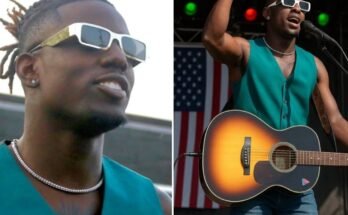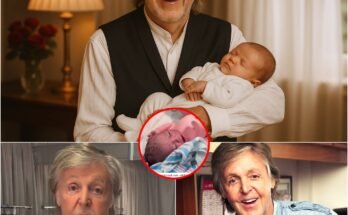For fans of The Beatles, December is a heavy month.
It’s when we lost John Lennon, tragically murdered in 1980 outside his New York apartment.
But fewer people know that two decades later, another horrifying attack nearly claimed the life of another Beatle — George Harrison.
On December 30, 1999, an intruder broke into George’s quiet countryside home in England.
And what unfolded that night was chilling, violent… and nearly fatal.
A Quiet Life Interrupted
After The Beatles ended, George Harrison was the most reclusive of the Fab Four.
He retreated from the spotlight, focusing on spirituality, gardening, and music on his own terms.
By 1999, he and his wife Olivia were living peacefully at Friar Park, his Victorian estate in Henley-on-Thames — a sprawling, private sanctuary far from the chaos of Beatlemania.
But that peace would shatter just before the new millennium.
The Intruder in the Night
Michael Abram, a 33-year-old man suffering from untreated paranoid schizophrenia, believed he was on a divine mission to kill Harrison — a delusion fueled by religious obsession and psychosis.
On the night of December 30, Abram scaled a fence and broke into the mansion, armed with a kitchen knife.
He smashed a window, setting off the alarm — but he was already inside.
George confronted him, unarmed and caught off guard.
What followed was a terrifying struggle.
Abram stabbed George multiple times, including a puncture wound that narrowly missed his heart.
As George fought for his life, his wife Olivia intervened — hitting the intruder repeatedly with a fireplace poker and a lamp.
Her bravery saved George’s life.
Critical Injuries and a Shaken World
George was rushed to the hospital in critical condition.
He suffered a collapsed lung and deep chest wounds.
Doctors said it was a miracle he survived.
When news broke, the world was stunned.
After losing John Lennon to violence, it was unthinkable that another Beatle could be the target of such a horrific attack.
The Aftermath
Michael Abram was later found not guilty by reason of insanity and committed to a psychiatric hospital.
He was released in 2002, a decision that sparked controversy.
George, already battling cancer at the time, recovered from his physical wounds — but the emotional scars ran deep.
In a rare statement after the attack, George said:
“I’m not a person who likes to be famous. I’m a person who became famous… It’s a different thing.”
A Quiet Exit
Just two years later, in 2001, George passed away from cancer at age 58.
He spent his final years in peace, surrounded by loved ones — and deeply affected by the trauma of that night.
Final Thought
The attack on George Harrison wasn’t just a tragic echo of Lennon’s murder — it was a sobering reminder of how fame, even decades later, can make legends vulnerable.
But George’s resilience — and Olivia’s courage — turned a moment of terror into a story of survival.
And like his music, his strength still resonates.


